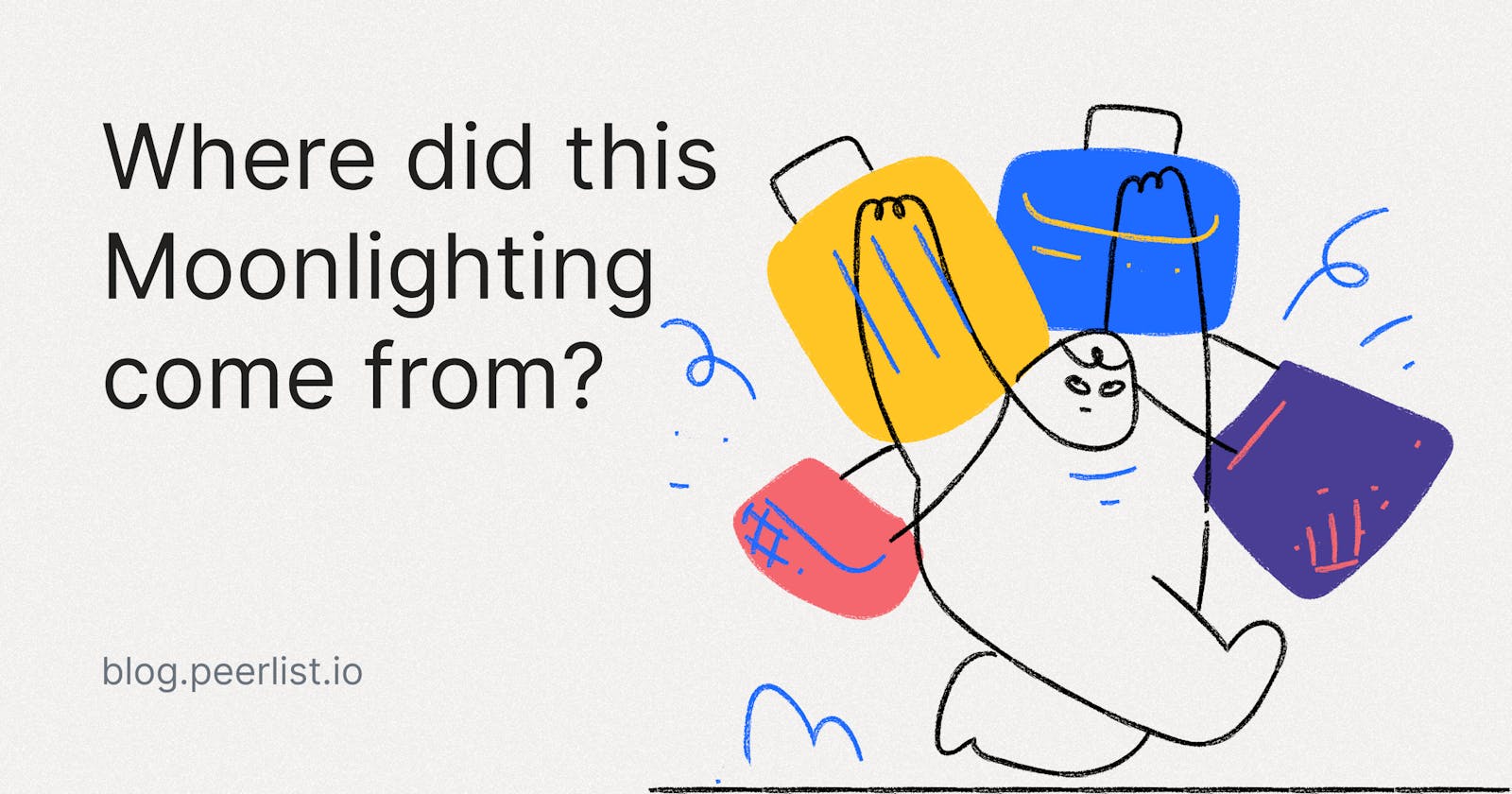Where did this Moonlighting come from?
42% of the participants said they would consider changing their jobs or even quitting if they were not allowed to work from home.
You have a 9-5 job and after a few months, it becomes monotonous work and you feel like a robot doing the same tasks every day. And then you see the ray of hope in the name of ‘side project’ - finally something to look forward to. Now you enjoy working your 9-5 as well. You see how your learnings from both jobs are interlinked. You feel grateful for having the opportunity to be able to do side projects - for yourself. Also, extra money is a bonus too!
Seems like a dream come true, right?
A lot of us have been living this dream and a lot of us have been banned from even thinking about this - doing is altogether a different task. That’s where Moonlighting enters.
Before we go further, let’s first understand what Moonlight is.
What is Moonlight?
Moonlight typically means when a person works more than one job - a second job during non-working hours.
For example, people from IT backgrounds go for a side project to sharpen their skills and as a fun way to keep their motivation high during working hours.
Now that you know what moonlighting is, let’s understand what Moonlighting policy is.
What is Moonlighting policy?
Moonlighting policy states that an employee working with an organization having a second job (or a side project) should prioritize the primary job over the second job/side project. That being said, they are allowed to work during their non-working hours.
The confusion is real with the terms. So, the policy allows the employees to keep the second jobs but with some conditions - that depend on the organization.
For example, Microsoft’s moonlighting policy clearly says, “anything after hours, made using 100% of your own resources, is yours" - your own resources is a keyword, Microsoft provides much free software.
But when it comes to Google, their policy says, “We own everything you produce unless you used no company resources" - which means exactly the same but understand the language difference.
The former one (Microsoft) gives free will and the latter one (Google) gives a warning.
These companies have a moonlighting policy, but a few have moonlighting ban. For example, Wipro has a moonlighting ban.
Recently in a tweet, Rishad Premji said, “There is a lot of chatter about people moonlighting in the tech industry. This is cheating - plain and simple."
Highly controversial claim and personally, I don’t think it’s that simple.
Let’s understand what moonlighting ban is.
What is Moonlighting ban?
Moonlighting ban means the organization doesn’t allow its employees to work a second job. There is no condition. It’s a NO and if the organization finds out about the employee moonlighting, some serious legal actions can be taken against the employee.
That being said, if there is no mention of it in the contract, then there should not be any legal activities involved.
A July Kotak Institutional Equities survey of 400 people across the IT & ITES space, showed that 65% knew of people moonlighting while working from home.
From the same survey, 42% of the participants said they would consider changing their jobs or even quitting if they were not allowed to work from home - I was one of them.
Let’s understand what are some cons and pros for the organization if an employee decided to moonlight.
Pros for an organization -
Prioritizing -
- Employees will prioritize the important tasks over the bare minimum.
- Employees will focus on the overall overcome of the tasks.
Motivation -
- Employees will be excited to do more.
- Money from two employers excites an employee to do more.
Growth and learning -
- Employees feeling content with the job is in the favor of the organization only.
- Employees have the chance to grow and to learn more - an advantage for the primary job as well.
Cons for an organization -
Negative Productivity -
- Less productivity for the primary job.
- Employees could be tired from the second job to provide the best outcome for the primary job.
- Employees working on weekends can come to work with a lack of motivation to work - since weekends are for relaxation.
Distraction -
- Working two jobs is not an easy task - it can lead to high-stress levels.
- It can affect the overall efficiency of an employee.
Misuse of company resources -
- This is something most organization doesn’t support. Using the devices or software for personal or any non-office-related work is usually prohibited.
- It can cause a leak of the company’s confidential information as well.
There has been a case where an employee was found working for seven different organizations and using one’s data for another job which definitely is illegal and unethical as well.
In general, moonlighting is legal all over the world until the organization has mentioned otherwise.
I think having a moonlighting policy is a way better alternative. It gives a chance to have an open dialogue with the employees. Knowing your team’s side project makes it a more personalized experience for the employees and the managers.
I must say it’s a good way to retain the employees.
Recently, Swiggy has introduced a policy that allows its staff to get side gigs or second jobs outside of their working hours. As long it doesn’t affect productivity, they are allowed.

